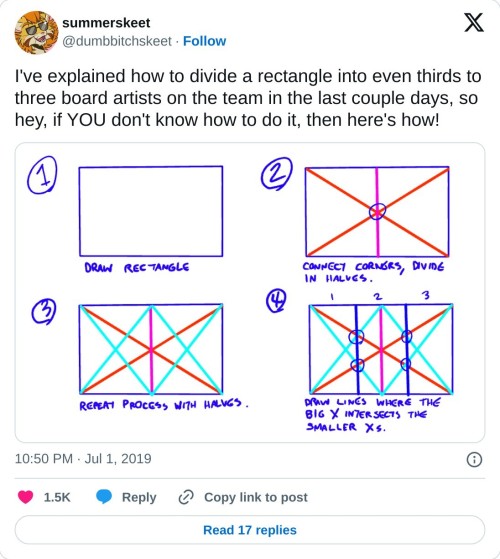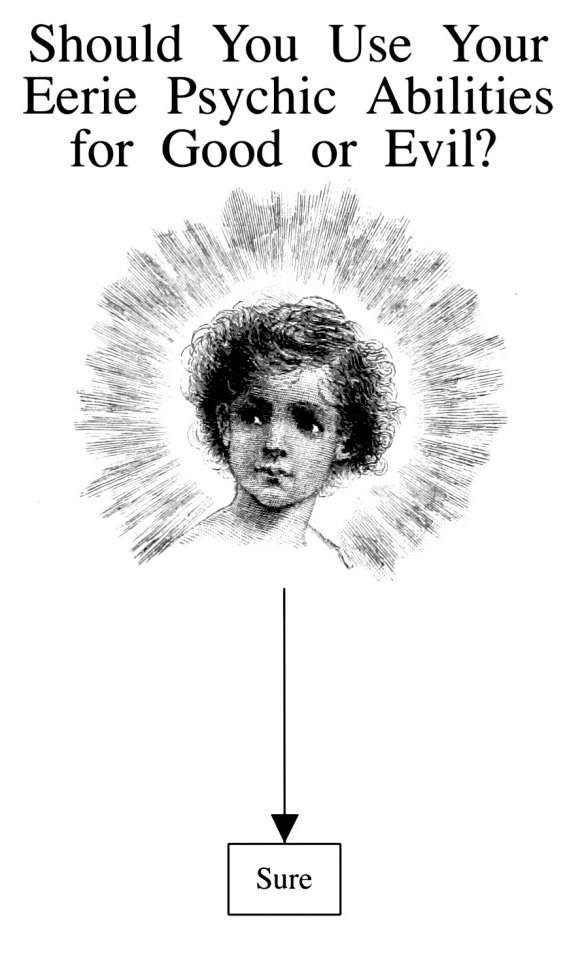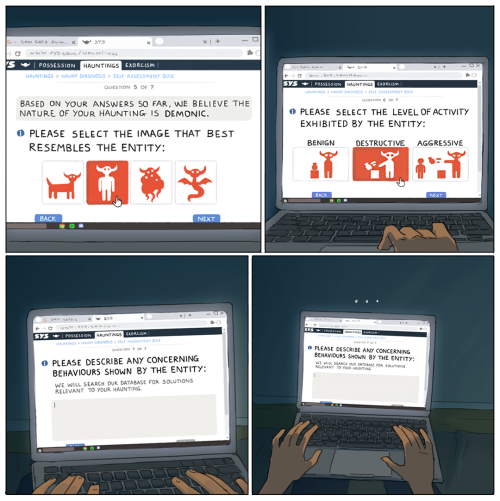screams-a-bunch
im here
209 posts
Latest Posts by screams-a-bunch





'All I see is you.'

describing my relationship to someone by introducing them to people as "an old wound"

Source: The New York Tattler, July 8, 1909.

faeries are not real but i wish thwy were so i could spray one with raid

why is religious Christmas imagery all so joyful and pleasant? where is the inherent horror of the birth of Christ? A mother is handed her newborn child, wailing and innocent. Her hands come away sticky. Red. Simply by giving her son life she has already killed him. He is doomed from the beginning. Her love will not save him from suffering. Because the thing cradled in her arms is not a baby, it is a sacrifice: born amongst the other bleating animals whose blood will one day be spilled in the name of what demands it. the night is silent with anticipation. Mary, did you know? That your womb was also a grave?
officially decided that anyone who tries to divide the lgbt community is a fed. i dont care if you're not actually a fed, if you're causing infighting in a minority community then you're a fed who just isnt getting paid to be one. either apply for a job at the CIA or shut the fuck up
Let’s do a Wild Hunt larp where we kidnap Jeff Bezos and release him in the forest and then give all the larpers (who are amazon employees) weird masks and motorbikes painted to look like fucked up horses and wolves.
extremely fucked up that the only way out is through
I understand why a lot of fantasy settings with Ambiguously Catholic organised religions go the old "the Church officially forbids magic while practising it in secret in order to monopolise its power" route, but it's almost a shame because the reality of the situation was much funnier.
Like, yes, a lot of Catholic clergy during the Middle Ages did practice magic in secret, but they weren't keeping it secret as some sort of sinister top-down conspiracy to deny magic to the Common People: they were mostly keeping it secret from their own superiors. It wasn't one of those "well, it's okay when we do it" deals: the Church very much did not want its local priests doing wizard shit. We have official records of local priests being disciplined for getting caught doing wizard shit. And the preponderance of evidence is that most of them would take their lumps, promise to stop doing wizard shit, then go right back to doing wizard shit.
It turns out that if you give a bunch of dudes education, literacy, and a lot of time on their hands, some non-zero percentage of them are going to decide to be wizards, no matter how hard you try to stop them from being wizards.
This is me. Kinda jealous of all the writers who can write quickly because I can't.

writing tips - pagan religion
YO! pagan religions are hella cool!
They're also tricky to write.
Lemme help.
What is a pagan religion?
Pagan religions revolve around the natural world. The deities are associated with natural occurrences, and the ritual of life and death is crucial.
Life and death practices of pagan religions are usually the centerfold. Rituals in the religion have to do with sacrifice and natural procession in the environment.
Common themes:
hunter/hunted
dawn/dusk
stars!
growth and rot
Like any religion, there are two sides to every coin (god). If there is light, there must be dark. If there is heat, there must be freeze as well.
Worship? Devotion? Fear?
Another difference between pagan religions and monotheistic or polytheistic religions is the attitude of address. In mono/poly, it's a feeling of 'I will devote myself to you because i want to better myself and I believe it will assist that'. Pagan religions have an understanding of 'this is your world, we're just living in it. you are responsible for everything, so i pray to you to ask for protection from the side effects and to allow me to stay alive.'
it's less of a power thing and more of a survival/coexistence thing. Neither is bad! they're just different, and it's a sizeable difference.
Pagans believe that the world is joyful and of creation, not of suffering. There is no sacrifice to 'devote yourself' there is sacrifice to show appreciation and exchange for inhabiting the god's space.
Pagans are very earth conscious and aware of how the effects of their lives impact the holy world. Often, they are rustic societies that give back as much as possible.
A pantheon is not the same as pagan.
Just because they are both polytheistic doesn't mean they function the same way. There are differences!! Please research!!
Like I said in my pantheon religion post, it's important to do this research to do the religion justice. People who are pagan don't want to read sloppily, under-researched presentations of their beliefs. That doesn't help with media misrepresentation.
xox love you!
How to show emotions
Part V
How to show grief
a vacant look
slack facial expressions
shaky hands
trembling lips
swallowing
struggling to breathe
tears rolling down their cheeks
How to show fondness
smiling with their mouth and their eyes
softening their features
cannot keep their eyes off of the object of their fondness
sometimes pouting the lips a bit
reaching out, wanting to touch them
How to show envy
narrowing their eyes
rolling their eyes
raising their eyebrows
grinding their teeth
tightening jaw
chin poking out
pouting their lips
forced smiling
crossing arms
shifting their gaze
clenching their fists
tensing their muscles
then becoming restless/fidgeting
swallowing hard
stiffening
holding their breath
blinking rapidly
exhaling sharply
How to show regret
scrubbing a hand over the face
sighing heavily
downturned mouth
slightly bending over
shoulders hanging low
hands falling to the sides
a pained expression
heavy eyes
staring down at their feet
Part I + Part II + Part III + Part IV + Part VI
If you like my blog and want to support me, you can buy me a coffee or become a member! And check out my Instagram! 🥰


Can we all just appreciate that Alex Hirsch, creator of Gravity Falls, was prank calling Republican voter fraud hotlines on November 6, 2020?
Showing 'Excitement' in Writing
Eyes sparkling with anticipation.
Bouncing on the balls of their feet.
Clapping hands together in delight.
Speaking in a high-pitched, rapid tone.
Grinning from ear to ear.
Jumping up and down with joy.
Hugging others spontaneously.
Cheeks flushed with enthusiasm.
Widening eyes and raised eyebrows.
Waving hands animatedly while talking.
Giggling or laughing uncontrollably.
Unable to sit still, shifting in their seat.
Heart racing with exhilaration.
Feet tapping or legs jiggling.
Practically vibrating with energy.
Exclaiming, "I can't believe it!" repeatedly.
Reaching out to touch or grab someone’s hand.
Dancing or spinning around.
Clutching their chest as if to contain the excitement.
Practicing or rehearsing what they’ll say or do.
if you're trying to get into the head of your story's antagonist, try writing an "Am I the Asshole" reddit post from their perspective, explaining their problems and their plans for solving them. Let the voice and logic come through.

really helpful technique ^ once you know how to divide by halves and thirds it makes drawing evenly spaced things in perspective waaay easier:


Fuck that post going around saying "you can have coffee in your story without justifying it :) you don't need to explain everything :)" I want, no, I DEMAND a fully researched ethnobotanical paper on every single food item in your work, if you don't explain to me where did potatoes come from in your fantasy setting or don't explain how the industry of coffee works over interstellar distances with full detail you are doing things wrong and I personally hate you and I hate your stupid story, fuck you
Principles and Laws of Magic for Fantasy Writers
Fundamental Laws
1. Law of Conservation of Magic- Magic cannot be created or destroyed, only transformed.
3. Law of Equivalent Exchange- To gain something, an equal value must be given.
5. Law of Magical Exhaustion- Using magic drains the user’s energy or life force.
Interaction and Interference
4. Law of Magical Interference- Magic can interfere with other magical effects.
6. Law of Magical Contamination- Magic can have unintended side effects.
8. Law of Magical Inertia- Magical effects continue until stopped by an equal or greater force.
Resonance and Conditions
7. Law of Magical Resonance- Magic resonates with certain materials, places, or times.
9. Law of Magical Secrecy- Magic must be kept secret from the non-magical world.
11. Law of Magical Hierarchy- Different types of magic have different levels of power and difficulty.
Balance and Consequences
10. Law of Magical Balance- Every positive magical effect has a negative consequence.
12. Law of Magical Limitation- Magic has limits and cannot solve every problem.
14. Law of Magical Rebound- Misused magic can backfire on the user.
Special Conditions
13. Law of Magical Conduits- Certain objects or beings can channel magic more effectively.
15. Law of Magical Cycles- Magic may be stronger or weaker depending on cycles (e.g., lunar phases).
17. Law of Magical Awareness- Some beings are more attuned to magic and can sense its presence.
Ethical and Moral Laws
16. Law of Magical Ethics- Magic should be used responsibly and ethically.
18. Law of Magical Consent- Magic should not be used on others without their consent.
20. Law of Magical Oaths- Magical promises or oaths are binding and have severe consequences if broken.
Advanced and Rare Laws
19. Law of Magical Evolution- Magic can evolve and change over time.
20. Law of Magical Singularities- Unique, one-of-a-kind magical phenomena exist and are unpredictable.
Unique and Imaginative Magical Laws
- Law of Temporal Magic- Magic can manipulate time, but with severe consequences. Altering the past can create paradoxes, and using time magic ages the caster rapidly.
- Law of Emotional Resonance- Magic is amplified or diminished by the caster’s emotions. Strong emotions like love or anger can make spells more powerful but harder to control.
- Law of Elemental Harmony- Magic is tied to natural elements (fire, water, earth, air). Using one element excessively can disrupt the balance and cause natural disasters.
- Law of Dream Magic- Magic can be accessed through dreams. Dreamwalkers can enter others’ dreams, but they risk getting trapped in the dream world.
- Law of Ancestral Magic- Magic is inherited through bloodlines. The strength and type of magic depend on the caster’s ancestry, and ancient family feuds can influence magical abilities.
- Law of Symbiotic Magic- Magic requires a symbiotic relationship with magical creatures. The caster and creature share power, but harming one affects the other.
- Law of Forgotten Magic- Ancient spells and rituals are lost to time. Discovering and using forgotten magic can yield great power but also unknown dangers.
- Law of Magical Echoes- Spells leave behind echoes that can be sensed or traced. Powerful spells create stronger echoes that linger longer.
- Law of Arcane Geometry- Magic follows geometric patterns. Spells must be cast within specific shapes or alignments to work correctly.
- Law of Celestial Magic- Magic is influenced by celestial bodies. Spells are stronger during certain astronomical events like eclipses or planetary alignments.
- Law of Sentient Magic- Magic has a will of its own. It can choose to aid or hinder the caster based on its own mysterious motives.
- Law of Shadow Magic- Magic can manipulate shadows and darkness. Shadowcasters can travel through shadows but are vulnerable to light.
- Law of Sympathetic Magic- Magic works through connections. A spell cast on a representation of a person (like a doll or portrait) affects the actual person.
- Law of Magical Artifacts- Certain objects hold immense magical power. These artifacts can only be used by those deemed worthy or who possess specific traits.
- Law of Arcane Paradoxes- Some spells create paradoxes that defy logic. These paradoxes can have unpredictable and often dangerous outcomes.
- Law of Elemental Fusion- Combining different elemental magics creates new, hybrid spells with unique properties and effects.
- Law of Ethereal Magic- Magic can interact with the spirit world. Ethereal mages can communicate with spirits, but prolonged contact can blur the line between life and death.
- Law of Arcane Symbiosis- Magic can bond with technology, creating magical machines or enchanted devices with extraordinary capabilities.
- Law of Dimensional Magic- Magic can open portals to other dimensions. Dimensional travelers can explore alternate realities but risk getting lost or encountering hostile beings.
- Law of Arcane Sacrifice- Powerful spells require a sacrifice, such as a cherished memory, a personal item, or even a part of the caster’s soul.
---
✨ Hello, I'm Kali, The Plot Mage! ✨
I’m here to ignite your creativity and help you craft your next bestseller! Today is your lucky day, writer! 🪄 Whether you're battling writer's block or building an epic fantasy world, I've got just the tool you need to make your writing journey enjoyable and organized.
Introducing the all-in-one writer’s toolkit designed by a fellow fantasy writer. 🌟 This comprehensive resource includes:
- An in-depth worldbuilding worksheet (covering religion, lore, factions, currency, economics, and more)
- Character development worksheet
- Series roadmap
- Outlining and guided plot planning section
- Relationship dynamic worksheet
- Idea dump and a repository of helpful writing resources
- Task planner (from brainstorming to publishing and book marketing)
- Plus, free editable wanted posters and fantasy illustrations because you're special ❤️
✨ Use code "F4NTASY" for a magical 75% off! ✨
Happy writing, and let’s bring your fantasy world to life! 🌈📚







120 ULTIMATE LIST OF CHARACTER FLAWS. Writers save this!
1. Moral Flexibility - Adapts their ethics to fit the situation, often justifying questionable actions as necessary.
2. Cognitive Dissonance - Holds two conflicting beliefs or values and struggles to reconcile them, leading to inner turmoil.
3. Overempathy - Feels others’ emotions too intensely, leading to burnout or an inability to make objective decisions.
4. Intellectual Arrogance - Dismisses others’ ideas as inferior, believing their own intellect is superior.
5. Chronic Overthinking - Analyzes situations to the point of paralysis, unable to take decisive action.
6. Restless Wanderlust - Has a constant desire for change or travel, leading to instability in relationships or careers.
7. Savior Complex - Feels compelled to “save” others, often to the detriment of their own well-being or others’ autonomy.
8. Emotional Vampirism - Drains others emotionally, needing constant validation or attention.
9. Righteous Indignation - Becomes excessively angry over perceived injustices, often alienating others.
10. Altruistic Self-Destruction - Sacrifices themselves for others to an unhealthy degree, often leading to self-neglect.
11. Pathological Modesty - Downplays their own achievements to the point of self-sabotage or invisibility.
12. Incapable of Solitude - Feels an intense fear of being alone, leading to codependent or unhealthy relationships.
13. Over-Rationalization - Justifies every action or decision, even when it’s clearly flawed, to avoid guilt or responsibility.
14. Constant Self-Sabotage - Subconsciously undermines their own success due to deep-seated fears or insecurities.
15. Misplaced Loyalty - Stays loyal to people or causes even when it’s harmful or undeserved.
16. Ethical Rigidity - Follows their moral code to the letter, unable to adapt to complex or gray situations.
17. Need for Obscurity - Prefers to stay unnoticed or in the background, avoiding recognition or responsibility.
18. Involuntary Aloofness - Appears distant or disinterested, often without meaning to, leading to misunderstandings.
19. Fear of Mediocrity - Terrified of being ordinary, they constantly strive for greatness, often leading to burnout.
20. Rejection Sensitivity - Overreacts to criticism or perceived slights, often withdrawing or lashing out.
21. Conflict Avoidance - Avoids confrontation at all costs, leading to unresolved issues and resentment.
22. Over-idealization of Others - Puts people on pedestals, only to be deeply disappointed when they don’t meet expectations.
23. Chronically Unfulfilled - No matter what they achieve, they always feel something is missing, leading to constant searching.
24. Compulsive Truth-Telling - Feels compelled to speak the truth, even when it would be kinder or wiser to remain silent.
25. Overactive Imagination - Sees threats or possibilities where there are none, leading to anxiety or missed opportunities.
26. Faux Humility - Pretends to be humble but secretly craves admiration or validation.
27. Micromanagement - Needs to control every detail, often suffocating others or hindering their own progress.
28. Anachronistic Thinking - Clings to outdated beliefs or practices, struggling to adapt to modern realities.
29. Over-Reliance on Routine - Becomes anxious or lost without their routines, struggling to adapt to change.
30. Selective Memory - Remembers events in a way that suits their narrative, often distorting the truth.
31. Paradoxical Fear of Success - Desires success but subconsciously fears the changes or responsibilities it might bring.
32. Compassion Fatigue - Once empathetic, now numbed or indifferent due to overwhelming exposure to others’ suffering.
33. Overwhelming Nostalgia - Lives in the past, unable to move forward or appreciate the present.
34. Unyielding Perfectionism - So focused on flawlessness that they struggle to complete tasks or accept anything less than perfect.
35. Epistemic Arrogance - Believes they know everything worth knowing, dismissing the possibility of learning from others.
36. Excessive Hedonism - Pursues pleasure to the point of neglecting responsibilities or moral considerations.
37. Over-Cautiousness - So afraid of making mistakes that they rarely take action, leading to missed opportunities.
38. Idealistic Naivety - Believes the world should operate according to their ideals, often clashing with reality.
39. Ambition without Direction - Desires greatness but has no clear path or plan, leading to frustration and failure.
40. Emotional Transference - Projects unresolved emotions onto others, often misinterpreting their intentions or actions.
41. Overdependence on Routine - Becomes anxious or lost without their routines, struggling to adapt to change.
42. Misplaced Guilt - Feels responsible for things outside of their control, leading to unnecessary self-blame.
43. Fear of Being Ordinary - Constantly strives to stand out, often at the expense of authenticity or well-being.
44. Chronic Indecisiveness - Struggles to make even simple decisions, constantly second-guessing themselves.
45. Faux Cynicism - Pretends to be jaded or cynical as a defense mechanism, while secretly caring deeply.
46. Romanticization of Suffering - Believes that suffering is noble or meaningful, often rejecting happiness or comfort.
47. Selective Compassion - Empathetic towards some but completely indifferent or cold to others, often based on biases.
48. Avoidant Optimism - Avoids negative thoughts or situations, clinging to an unrealistic positivity that ignores real problems.
49. Fear of Abandonment - Clings to relationships out of fear of being left alone, often leading to unhealthy dynamics.
50. Overidentification with Work - Sees their job as their entire identity, struggling with self-worth outside of work.
51. Excessive Altruism - Sacrifices their own needs to help others, often to their own detriment.
52. Self-Imposed Isolation - Withdraws from others out of fear of rejection or misunderstanding, leading to loneliness.
53. Over-Analysis Paralysis - Overthinks every situation to the point of being unable to make decisions or take action.
54. Eternal Romantic - Sees the world through a lens of idealized love, often leading to disillusionment or heartbreak.
55. Emotional Incontinence - Struggles to control their emotions, often overwhelming others with their intensity.
56. Fear of Aging - Obsessed with youth, they go to great lengths to deny or hide the aging process.
57. Intellectual Cowardice - Avoids challenging their own beliefs or ideas, sticking to what they know out of fear of change.
58. Emotional Hoarding - Holds onto past hurts or grudges, unable to let go and move on.
59. Unquenchable Curiosity - Always needs to knw more, often prying into others’ lives or crossing boundaries.
60. Romantic Escapism - Uses fantasy or daydreams as a way to avoid dealing with reality, leading to detachment.
61. Masochistic Tendencies - Deliberately seeks out situations that cause them pain or discomfort, believing they deserve it.
62. Incurable Wanderer - Can never settle down, always moving on to the next place or experience, leading to rootlessness.
63. Dependency on Validation - Needs constant approval or praise from others to feel good about themselves.
64. Constant Self-Reinvention - Continuously changes their identity or persona, never settling on who they truly are.
65. Moral Masochism - Finds satisfaction in self-punishment or guilt, often holding themselves to impossible standards.
66. Faux Bravado - Pretends to be fearless or confident to hide deep-seated insecurities or fears.
67. Over-romanticization of the Past - Idealizes past experiences, believing that things were better back then, leading to dissatisfaction with the present.
68. Chronic Hedging - Never fully commits to decisions or actions, always leaving themselves an escape route.
69. Fear of Stagnation - Constantly needs to be doing something or moving forward, fearing they’ll become irrelevant or bored.
70. Over-Attachment to Objects - Places excessive sentimental value on material possessions, struggling to let go.
71. Emotional Stoicism - Refuses to show or acknowledge emotions, leading to repression and eventual breakdowns.
72. Self-Flagellation - Constantly punishes themselves for perceived failures or mistakes, often disproportionate to the actual events.
73. Fear of the Unknown - Terrified of what they can’t predict or control, leading to anxiety or avoidance of new experiences.
74. Romantic Pessimism - Believes that love or relationships are doomed to fail, leading to self-sabotage or cynicism.
75. Intellectual Purism - Believes in the superiority of “pure” intellectual pursuits, often dismissing practical or emotional concerns.
76. Existential Dread - Obsesses over the meaning (or lack thereof) of life, leading to paralysis or despair.
77. Involuntary Nonconformity- Desires to fit in but can’t help standing out or going against the grain, often feeling alienated.
78. Self-Imposed Martyrdom - Puts themselves in a position of suffering or sacrifice, believing it’s their duty or fate.
79. Idealized Self-Image - Clings to an unrealistic self-concept, struggling to accept their flaws or limitations.
80. Compulsive Honesty - Feels compelled to always tell the truth, even when it’s hurtful or inappropriate.
81. Over-Reliance on Technology - Becomes helpless without modern conveniences, struggling to cope with real-world challenges.
82. Moral Exhibitionism - Shows off their ethics or principles to gain admiration or moral superiority, often insincerely.
83. Perpetual Student Syndrome - Always learning but never applying knowledge, avoiding real-world responsibilities.
84. Emotional Osmosis - Absorbs others’ emotions so deeply that they lose track of their own feelings or needs.
85. Pathological Frugality - So obsessed with saving money or resources that they miss out on life’s joys or opportunities.
86. Obsessive Self-Improvement - Never satisfied with themselves, constantly striving for unattainable perfection.
87. False Modesty - Pretends to be humble while fishing for compliments or validation.
88. Uncontrolled Impulsiveness - Acts on whims or impulses without considering the consequences, leading to chaos or regret.
89. Chronic Hedonism - Lives only for pleasure, often to the detriment of their long-term happiness or relationships.
90. Overly Abstract Thinking - So focused on big ideas or concepts that they lose touch with reality or practical concerns.
91. Romantic Idealism - Believes in a perfect love or relationship, often leading to disappointment or disillusionment.
92. Selective Altruism - Only helps others when it suits them, often ignoring those who don’t fit their criteria.
93. Pathological Shyness - So shy or introverted that they struggle to function in social situations, often missing out on opportunities.
94. Moral Superiority - Believes they are more ethical or righteous than others, often looking down on those who don’t share their views.
95. Over-identification with a Role - Sees themselves only as their job, family role, or social identity, losing sight of their true self.
96. Chronic Complaining - Constantly finds something to complain about, often bringing others down or creating a negative atmosphere.
97. Faux Stoicism - Pretends to be emotionally strong or unaffected, while secretly struggling with deep emotional turmoil.
98. Addiction to Drama - Thrives on conflict or chaos, often creating drama where there is none to feel alive or important.
99. Obsessive Collecting - Gathers possessions, knowledge, or experiences obsessively, often unable to let go or move on.
100. Inflexible Optimism - Refuses to acknowledge negative possibilities, often unprepared for setbacks or challenges.
101. Contrarianism - Always takes the opposite stance just to challenge others, often without genuine conviction.
102. Emotional Projection - Attributes their own feelings or issues onto others, often leading to misunderstandings.
103. Compulsive Heroism - Feels the need to be seen as heroic or brave, even in situations that don’t call for it.
104. Spiritual Narcissism - Uses spirituality as a way to feel superior to others or to avoid personal flaws.
105. Self-Defeating Humor - Constantly makes jokes at their own expense, using humor to deflect serious issues.
106. Identity Fluidity - Frequently changes their identity or beliefs to fit in with different groups, losing a sense of true self.
107. Overattachment to the Past - Can’t move on from past successes or failures, allowing them to define their present.
108. Pseudointellectualism - Pretends to know more than they do, using complex language or ideas to impress others.
109. Overidealization of Youth - Places youth on a pedestal, often dismissing the value of experience or aging.
110. Refusal to Accept Help - Rejects assistance from others, believing they must do everything on their own, even to their detriment.
111. Emotional Manipulation - Uses guilt, pity, or other emotions to control or influence others, often without realizing it.
112. Inconsistent Values - Holds contradictory beliefs or morals, leading to confusion or hypocrisy in their actions.
113. Obsession with Legacy - So focused on how they’ll be remembered that they neglect the present or make unwise choices.
114. Excessive Eagerness to Please - Goes out of their way to make others happy, often at the cost of their own needs or principles.
115. Emotionally Guarded - Builds walls around their feelings, making it difficult for others to get close or understand them.
116. Selective Memory - Chooses to remember events in a way that favors them, often distorting the truth.
117. Overattachment to Authority - Relies heavily on rules or leaders, struggling to make decisions independently or question authority.
118. Fear of Vulnerability - Avoids showing weakness or asking for help, leading to isolation or burnout.
119. Intellectual Detachment - Approaches everything with cold logic, often ignoring the emotional or human side of situations.
120. Obsession with Control - Needs to control every aspect of their life and others’, often leading to stress or strained relationships.
BONUS🔥
CREATE YOUR CHARACTERS WITH DEPTH TODAY! Don't settle for shallow, forgettable characters—elevate your writing with the ultimate character worksheet.
This template isn't just about characters; it’s your all-in-one tool for worldbuilding, writer planning from idea generation to publishing, roadmaps, synced databases, and series planning. It’s the ultimate character and worldbuilding bible you’ve been waiting for.
Available now! Use code "F4NTASY" to get an incredible 75% off! This offer won’t last long, so grab yours now before it’s too late!








How to show emotions
Part VI
How to show insecurity
not holding/breaking eye contact
fidgeting
crossing their arms
trying to cover up their body
making themself seem smaller
playing with their hands
hiding their hands in their pockets
holding their head down
blushing
clearing their throat
biting their nails
biting their lips
nervous laughter
stuttering
How to show being offended
stiffening up
hard line around the lips
frozen stare
narrowing of the eyes
turning their head to the side
quickening heartbeat
turning red
making themself bigger, ready to fight
How to show compassion
gentle and soft smile
relaxed facial features
softening of their eyes
openly showing how they feel
leaning towards the other one
nodding along, not directly interjecting, but encouraging
deep breaths inbetween
gentle touches to comfort
How to show being pleased
big smile/grinning
laying head slightly to the side
moving one shoulder up
pursing their lips while smiling
very open body language
leaning back
Part I + Part II + Part III + Part IV + Part V
If you like my blog and want to support me, you can buy me a coffee or become a member! And check out my Instagram! 🥰


Yarn holder
cats are really useful for when you need a small animal to sit 10-15 feet away from you and stare at you with unceasing neutrality










Better Kate Than Never, part 1
Excerpt from.my new book!

one thing no one ever teaches you is that you can just make things nicer and more intentional- you can take your energy drink, pour it in a rocks glass over ice with a slice of lime on the rim, and sip it slow. and you'll think, "wow i am the biggest faggot to have ever lived". and you know what? you're right.



